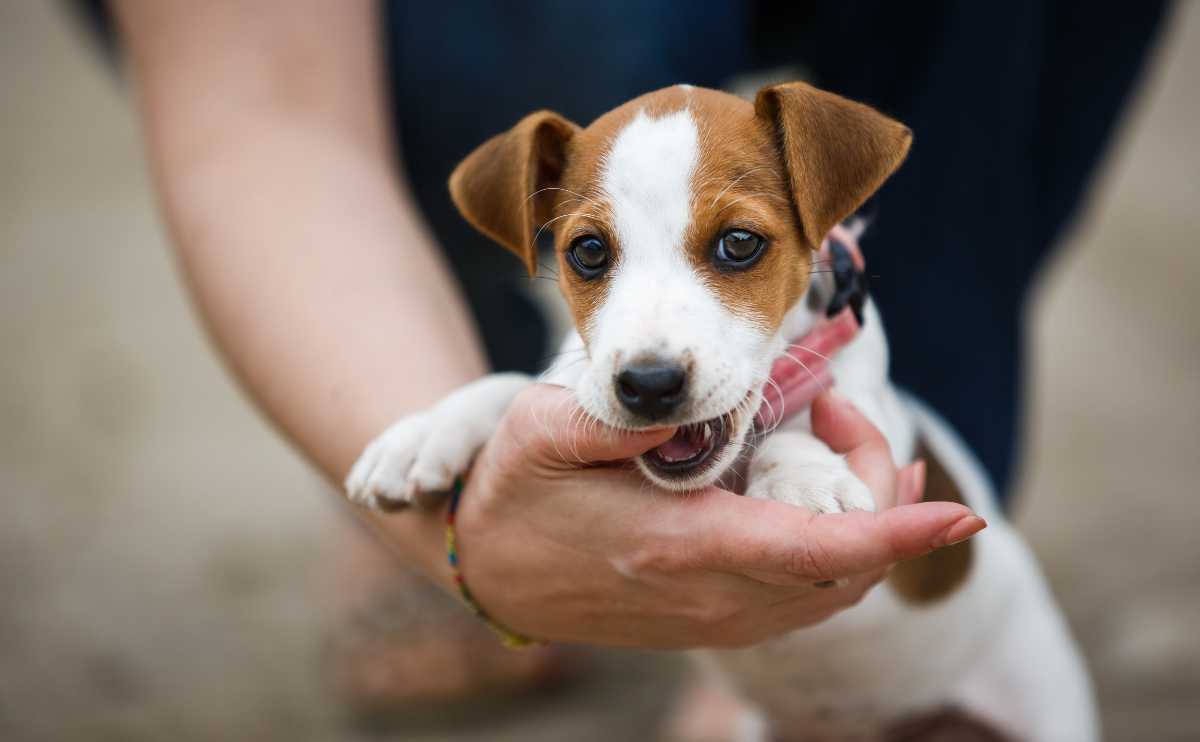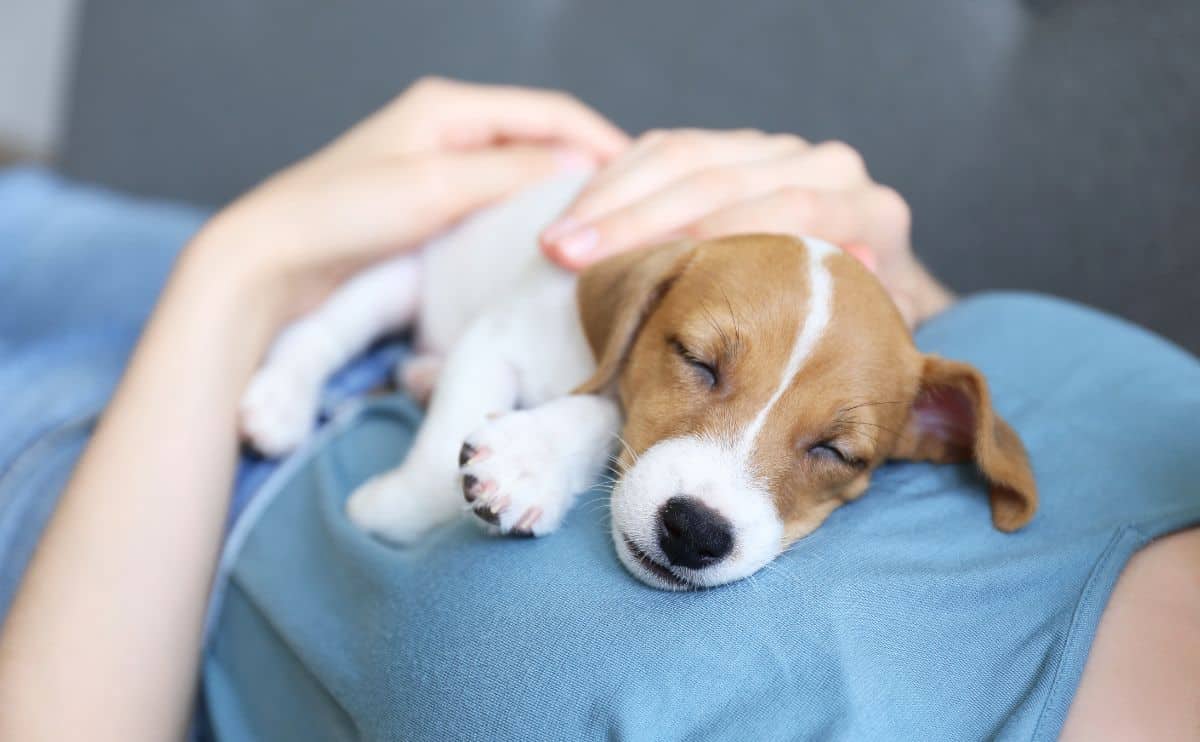When you purchase through links on our site, we may earn a commission. Here’s how it works.

So you are bringing your new puppy home. But is there a checklist to make sure you are ready? Here’s the ultimate puppy checklist to help you get started toward welcoming this new family member successfully into your home.
Why Routine Is Important For Puppies
First, it is essential to remember that your puppy has only been in the world a short time, so they are fragile and sensitive to sound and touch, as well as changes in routine. Establish a routine from the beginning of your puppy’s life and enforce rules as closely as possible.
It is also important to refrain from over stimulating your puppy during its first few months of life. Puppies sleep a lot because they grow a lot. Resist the urge to wake your puppy every few seconds to play. Much the same as babies, puppies need as much sleep as they can get. You will find that as your puppy ages, they will become more playful, and you will find yourself wishing that you had those sleepy days of puppyhood back!
Learn how much exercise your puppy needs
You should always be conscious of your puppy’s whereabouts. Many trainers attach a leash to their belt or carry the puppy everywhere to ensure that it is not getting into something it shouldn’t. It is also a good idea to puppy-proof your house before bringing a new dog into your home.
How To House Train Your New Puppy
Puppies are easily house trained (aka housebroken). Plan to be available for the first few weeks at home to let your puppy out every few hours. The fastest way to housetrain your puppy is to take them out every hour and immediately following naps, playtime, and meals. Such repetitive actions will quickly teach your puppy that you expect them to use the bathroom outside.
Read more about how to housebreak a puppy
How Long Can My Puppy Go Without Peeing?
If you are not available 24/7, it is good to remember that your puppy can hold its bladder for one hour for each month of age plus one (e.g., a four-month-old puppy can hold its bladder for five hours). However, particularly young puppies have limited control over their bladder muscles and, as a result, they have accidents.
Accidents should be reprimanded with a firm “no” and cleaned up. If you don’t catch your puppy in the act, don’t correct it. Remember, they are learning – they have no idea what’s good and bad. The best way to teach them is through positive reinforcement, not by being mean and condescending.
Once your puppy reaches six months old, they should be able to hold their bladder for up to seven hours. But, it may not be healthy for a puppy (or dog) to hold their bladder for such a long period. Imagine if you had to wait to pee for that long! If you cannot make it home every 5-6 hours, you might want to consider a dog walker to help out when you are away from home for an extended time period.
Get A Crate For Your Puppy
Leaving a puppy home alone can be a massive step for a new puppy parent. It creates constant worry about what the little guy (or gal) is doing. This is why we recommend crate train your puppy from the start. It not only gives your puppy a safe place to sleep, but it also keeps your puppy safe from danger when you are away. They’ll think of their crate as their safe place in your home.
When leaving your puppy in their crate, remember to return home for potty breaks frequently or hire a dog walker. Once spayed or neutered and your puppy has their initial shots, doggy daycare is another option. Doggy daycare offers the chance to socialize with other dogs, develop social skills, and exhaust all that extra energy!
Read more about how to crate train a puppy
Teach Your Puppy Social Skills
Teaching social skills is also a must, often in training classes. Training classes benefit you, your friends and family, and your well-behaved dog. Dogs thrive with structure, routine, and having a purpose. As your dog’s master new skills, they will feel a sense of confidence and a purpose each time they successfully complete a command. Something as simple as “sit-stay” can bring more joy to your dog than you could ever imagine.
Dog Training
In person basic puppy training classes can introduce your puppy to other dogs as well as teach them basic commands (sit, stay, down, off, leave it, heel, wait, etc.). An alternative that is often more affordable and allows you to work within your own schedule is online dog training. After graduating puppy class, you could enroll in a more advanced obedience class to reinforce the lessons that your puppy recently learned.
Following obedience classes, you might research specialty classes to turn your dog into a therapy canine, a dock dog, a hunter, a search and rescue pup, a tracker, an agility expert, and much more!
Learn about popular dog sports
Consider Pet Insurance
New puppies can cost a lot of money (see the costs associated with owning a dog). They are notorious for getting into trouble and winding up in the vet’s office, sidling you with a hefty vet bill. However, it is also a great time to secure a low rate for pet insurance since your dog has few (if any) pre-existing health conditions at such a young age. Learn more to determine whether you should enroll in a pet insurance plan that protects you from the financial strains associated with an unexpected vet emergency.
Find out if pet insurance is worth it for your pet
The Joy Of Puppyhood
Puppyhood is a time of joy, much like new parenthood. However, it also has ways of testing your limits. There will be nights of howling, accidents on the carpet, and perhaps even that emergency trip to the vet, but in the long run, puppyhood can be one of the most rewarding times in a dog parent’s life.
Take every day as it comes. Remember that while you are frustrated with your new puppy’s lack of understanding, your new puppy is just as bewildered by what you ask them to do. For every mistake, add an ounce of patience, and you’ll enjoy watching your new family member grow with your family.
Tagged With:

